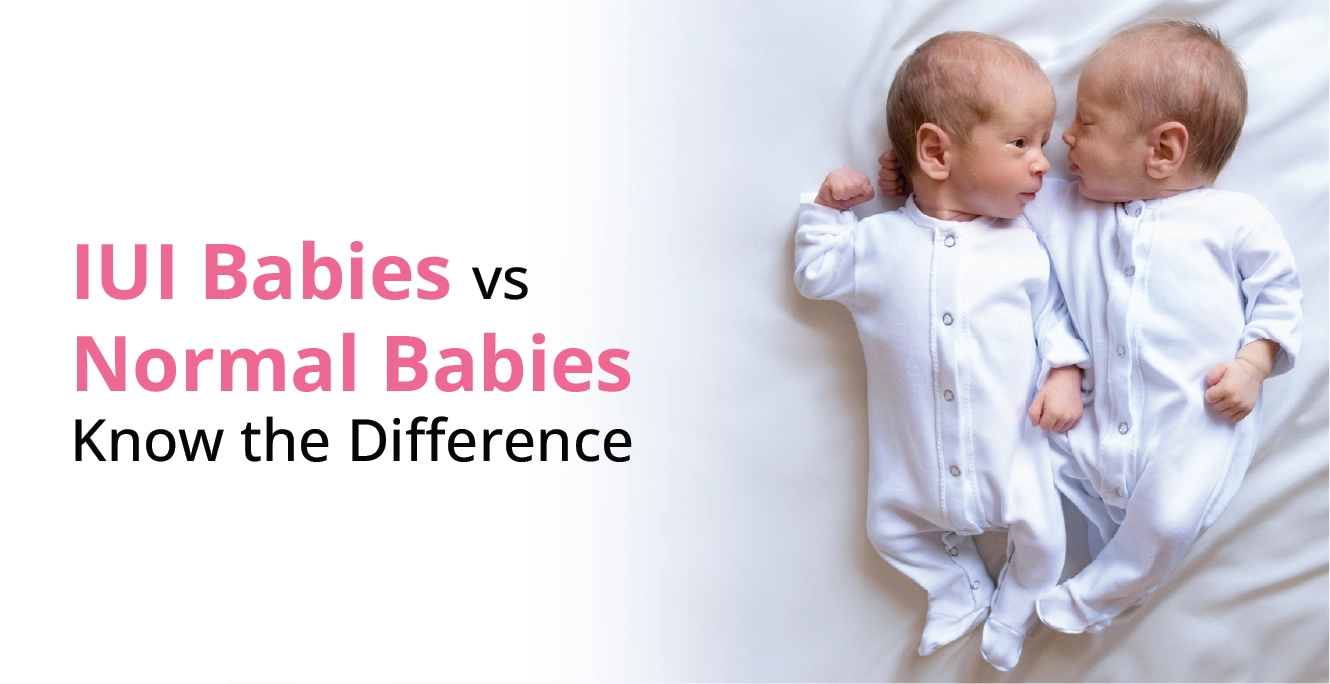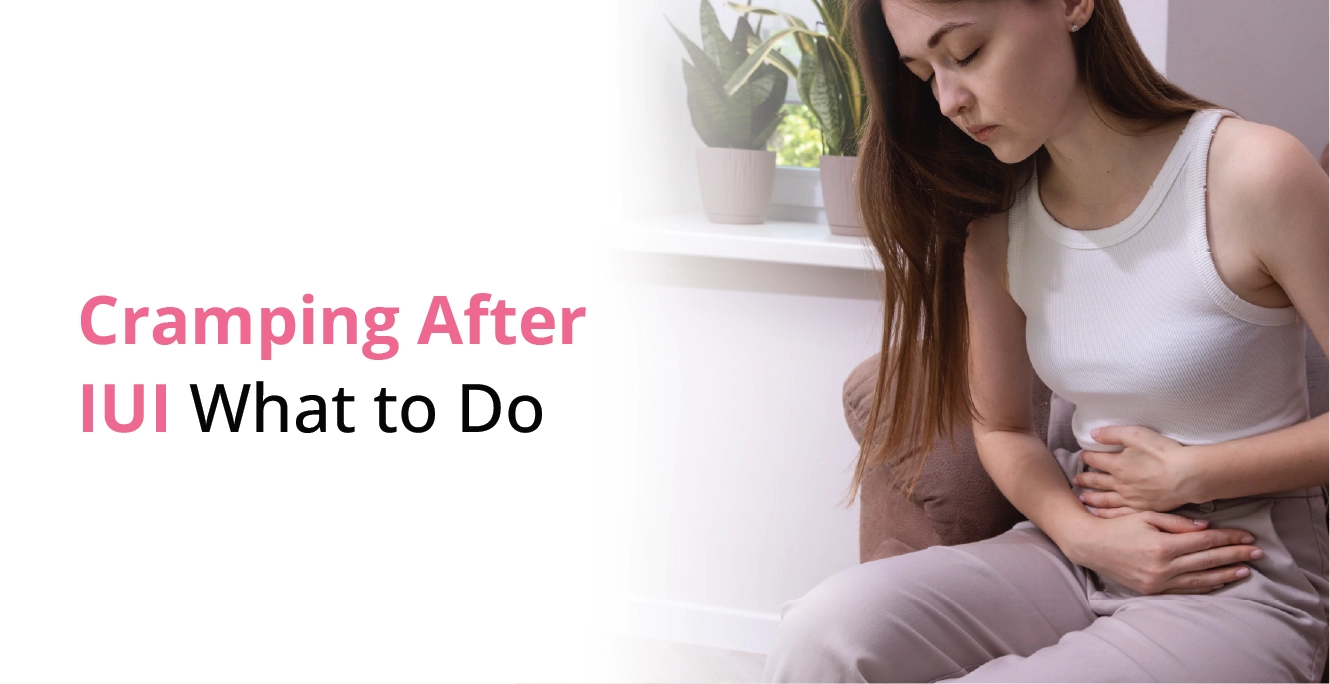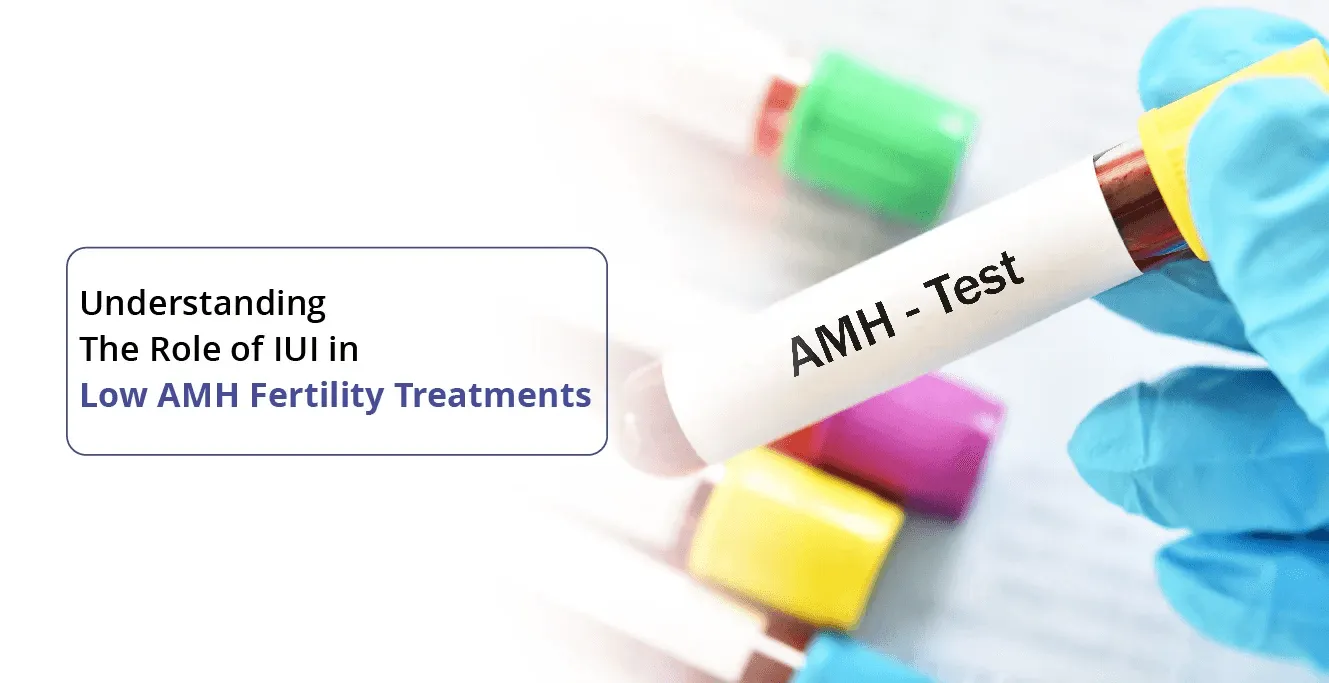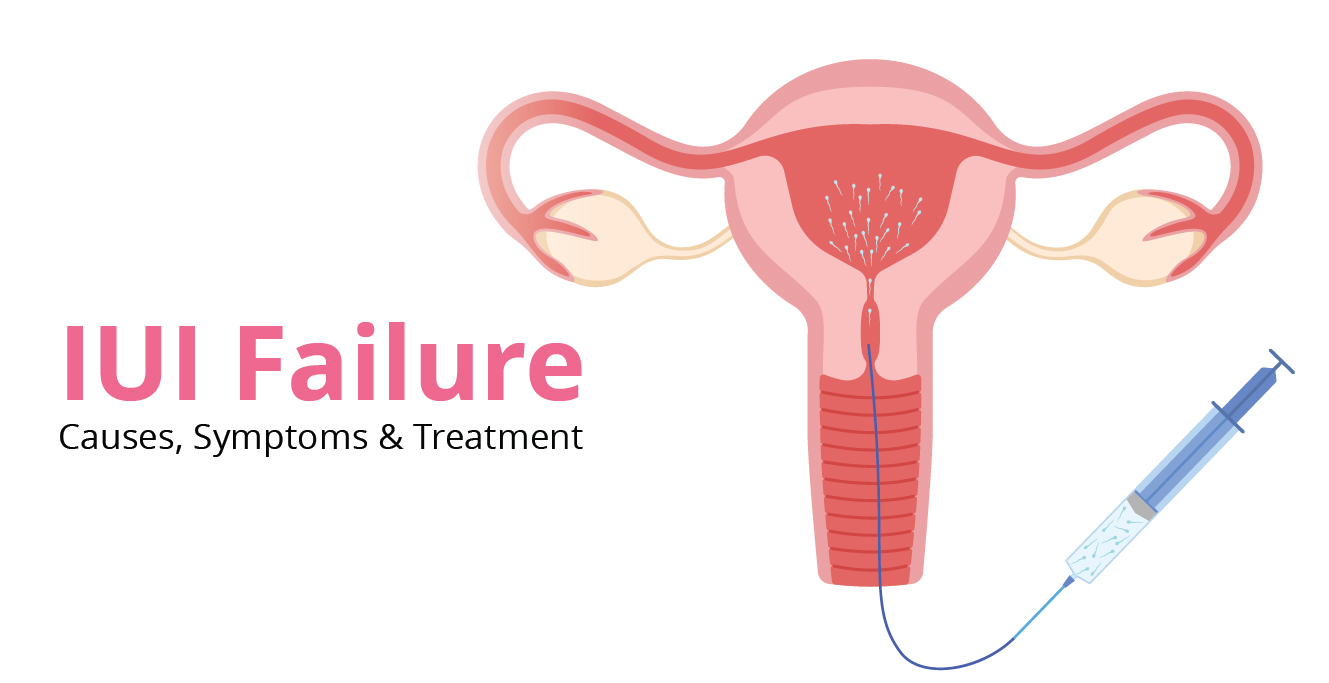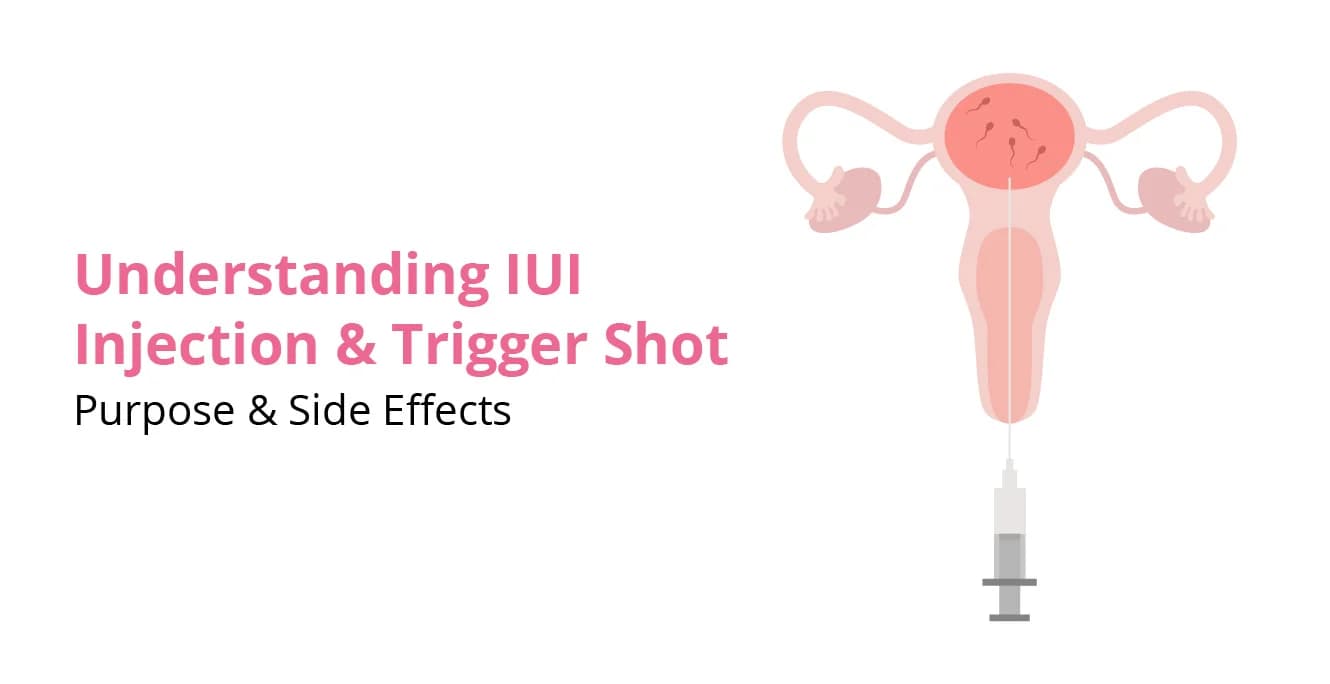
Understanding IUI Injection and Trigger Shot: Purpose and Side Effects

Table of Contents
- What is IUI?
- What is the IUI trigger shot?
- What Does the Trigger Shot Do?
- Who Gets the Trigger Shot?
- How is the Trigger Shot Timed?
- Side Effects of the Trigger Shot
- Common Mistakes During an HCG Trigger Shot
- What is the Success Rate of IUI with Trigger Shot?
- Conclusion
- FAQ:
- What are the chances of getting pregnant with the trigger shot?
- Is IUI with a trigger shot painful?
- How many IUI cycles can I try with a trigger shot?
- When is the trigger shot administered in the IUI process?
- Can the trigger shot increase the risk of multiple pregnancies?
- How soon after the trigger shot does ovulation occur?
- Is the trigger shot necessary for every IUI cycle?
- Can the trigger shot be self-administered at home?
If you’re exploring fertility treatments, you might have come across IUI with trigger shots. This treatment plan is recommended by doctors to increase the chances of conception by stimulating ovulation at the right time.
The IUI trigger shot side effects, which are typically transient and controllable, can include moderate bloating, mood changes, or injection site discomfort. This is something that many couples are curious about. Understanding the process’s goal and possible outcomes can boost your confidence. The success rate of IUI with trigger shots can be greatly increased with close observation and advice from your fertility doctor, providing couples hope for their future as parents.
What is IUI?
IUI, or intrauterine insemination, is a type of artificial insemination used to treat infertility. As the name suggests, IUI is a form of assisted reproduction in which a laboratory-prepared sample of semen is inserted into the woman’s uterus. It is the duty to preserve a natural fertilisation process. The implanted sperm becomes more effective and has a higher chance of fertilising the egg when its concentration rises.
The primary circumstances in which IUI treatment is utilised are as follows:
- Male factor-induced infertility that is mild
- Men’s ejaculatory problems
- When doctors cannot identify a specific cause for a patient’s infertility, it is known as unexplained infertility.
- In unreceptive cervical mucus, the mucus covering the cervix prevents sperm from entering your uterus or fallopian tubes.
- Serodiscordancy means that one or both parents are infected with HIV or hepatitis.
What is the IUI trigger shot?
An IUI trigger shot is a type of fertility injection given to stimulate ovulation at the right time, helping increase the chances of conception during intrauterine insemination (IUI).
Common trigger shots include:
- HCG (Human Chorionic Gonadotropin): This hormone mimics the natural LH surge in your body, signaling the ovaries to release a mature egg for fertilization.
- FSH (Follicle Stimulating Hormone): Sometimes used to stimulate the growth of multiple follicles in the ovaries, increasing the likelihood of ovulation.
The trigger shot’s timing is critical since it indicates to your fertility doctor the optimal time to execute IUI.
Although IUI trigger shots are effective, it’s normal to be concerned about their potential adverse effects, which can include moderate bloating, breast tenderness, exhaustion, or discomfort at the injection site. These typically resolve quickly, and your doctor keeps a close eye on them.
Couples can increase the IUI with trigger shot success rate and enhance ovulation timing by combining the two procedures, which will make the fertility process more efficient and predictable.
What Does the Trigger Shot Do?
The trigger shot is a fertility injection designed to induce ovulation at the optimal time for conception. These shots contain HCG (Human Chorionic Gonadotropin), it mimics the body’s natural LH surge, signaling the ovaries to release a mature egg. The ovulation timing is controlled so that the trigger shot helps fertility specialists plan fertility procedures like IVF or IUI around the same time for maximum effectiveness.
There are some protocols that use FSH or other fertility hormones to stimulate follicle growth. When properly administered, the trigger shots significantly improved the chances of conception while allowing doctors to monitor and guide the process safely.
Who Gets the Trigger Shot?
Couples undergoing fertility treatments generally wonder if every condition or plan needs a trigger shot. Well, not every patient will need it, but it is usually recommended for women undergoing IVF, IUI, or ovulation induction cycles.
Women who have irregular ovulation, delayed follicle maturation, or are receiving fertility medications like Clomid or FSH injections may also receive a trigger shot. This is done to ensure the egg release is efficient. Your fertility specialist evaluates hormone levels, follicle size, and cycle timing before prescribing it. The goal is to synchronize ovulation with the insemination or egg retrieval, maximizing the IUI with trigger shot success rate and improving the chances of a healthy pregnancy.
How is the Trigger Shot Timed?
You might be wondering, “Why is timing so crucial in a ‘trigger shot’?”
Well, timing is critical for a trigger shot to work effectively. It is basically administered once the ultrasound confirms that the dominant follicle(s) have reached their optimal size. This is generally around 18-20 mm, and hormone levels indicate that ovulation is imminent.
After the shot, ovulation generally happens within 36 hours, so procedures like IUI are scheduled carefully within this fertility window. Estrogen and LH levels are also monitored to ensure accurate timing and that the sperm meets the egg at the right moment. It is crucial for improving the IUI trigger shot success rate and increasing the chances of pregnancy.
Side Effects of the Trigger Shot
There are various side effects that one can experience with the trigger shot. The most common ones include:
- Bloating, nausea, vomiting, or diarrhea
- Stomach or pelvic pain
- Tenderness at the injected area
- OHSS (ovaries can become swollen and filled with fluid)
- Mild discomfort
Other possible symptoms of this syndrome include blood clots, difficulty in breathing, or lowered urine output. In case if any symptom sticks around, then you must consult your healthcare provider.
Common Mistakes During an HCG Trigger Shot
There are some mistakes that must be avoided when it comes to HCG trigger shots since they can impact the effectiveness. Here are the most common mistakes that you must avoid:
- Timing– As already mentioned above, timing is crucial when it comes to trigger shots. Taking the shot too early or too late can affect ovulation and reduce the chances of success.
- Dosage– The second most common mistake is using an incorrect dose or missing part of the injection. This may prevent proper egg maturation.
- Improper Injection Technique– Injecting at the wrong site or not following sterile techniques can cause discomfort or infection.
- Missing the Trigger Shot Entirely– Delaying or forgetting the shot can lead to cycle cancellation, which can hamper the flow of the process.
- Ignoring the Side Effects– Mild bloating or discomfort is common, but severe pain should be reported immediately.
- Improper Storage of the Injection– Not storing the medication as advised is also one of the most common mistakes that people make. It can reduce the effectiveness.
What is the Success Rate of IUI with Trigger Shot?
The success rate of IUI with a trigger shot varies based on many factors. The most common ones are fertility diagnosis, age, egg quality, and sperm health.
On average, IUI with a trigger shot has a success rate of about 10–20% per cycle.
The HCG trigger shot helps ensure timely ovulation, increasing the chances that sperm and egg meet at the right moment. Success rates tend to be higher in women who are under the age of 35, those with good ovarian reserve, and cases of unexplained infertility or mild male factor issues. These results can vary; however, proper monitoring and timing definitely improved the outcomes with IUI.
Conclusion
IUI with a trigger shot is a well-established and effective fertility treatment for many couples. It is especially recommended when ovulation timing needs support. Combining ovulation induction with careful monitoring increases the chances of fertilisation while keeping the process as natural and minimal as possible.
There are some mild side effects of IUI trigger shots, but they are generally temporary and manageable under medical supervision. Avoiding common hCG trigger shot mistakes and following your specialist’s guidance closely can further enhance outcomes. At last, the right diagnosis, expert care, and personalised treatment planning improve the chances of getting pregnancy, especially with the help of IUI and trigger shots.
FAQ:
What are the chances of getting pregnant with the trigger shot?
The chances of getting pregnant with a trigger shot depend on factors like age, fertility diagnosis, and overall reproductive health, but it significantly improves ovulation timing. When combined with treatments like IUI, pregnancy rates are typically around 10–20% per cycle, and higher in well-selected cases.
Is IUI with a trigger shot painful?
No, IUI with a trigger shot is not generally painful, but you might feel a little pinch from the injection. However, it is completely tolerable and short-lived.
How many IUI cycles can I try with a trigger shot?
Most couples can try 3 to 4 IUI cycles with a trigger shot, as this is when the highest chances of success are usually seen.
When is the trigger shot administered in the IUI process?
In the IUI process, the trigger shot is usually given when the dominant follicle reaches the right size (around 18–20 mm) on ultrasound and hormone levels indicate readiness for ovulation. Ovulation typically occurs about 36 hours after the shot, so IUI is carefully timed within this window to maximise the chances of pregnancy.
Can the trigger shot increase the risk of multiple pregnancies?
A trigger shot (hCG injection) combined with ovulation induction, such during IUI, can indeed raise the probability of multiple pregnancies (twins or more).
How soon after the trigger shot does ovulation occur?
Ovulation typically occurs 36 to 40 hours after a trigger shot (hCG or agonist) is done during IUI.
Is the trigger shot necessary for every IUI cycle?
No, trigger shot is not highly necessary for every IUI cycle, but it is generally recommended to increase the success rate by precisely timing ovulation.
Can the trigger shot be self-administered at home?
Yes, the trigger shot can be, and often is, self-administered at home.
Our Fertility Specialists
Related Blogs
To know more
Birla Fertility & IVF aims at transforming the future of fertility globally, through outstanding clinical outcomes, research, innovation and compassionate care.
Had an IVF Failure?
Talk to our fertility experts

 Our Centers
Our Centers





